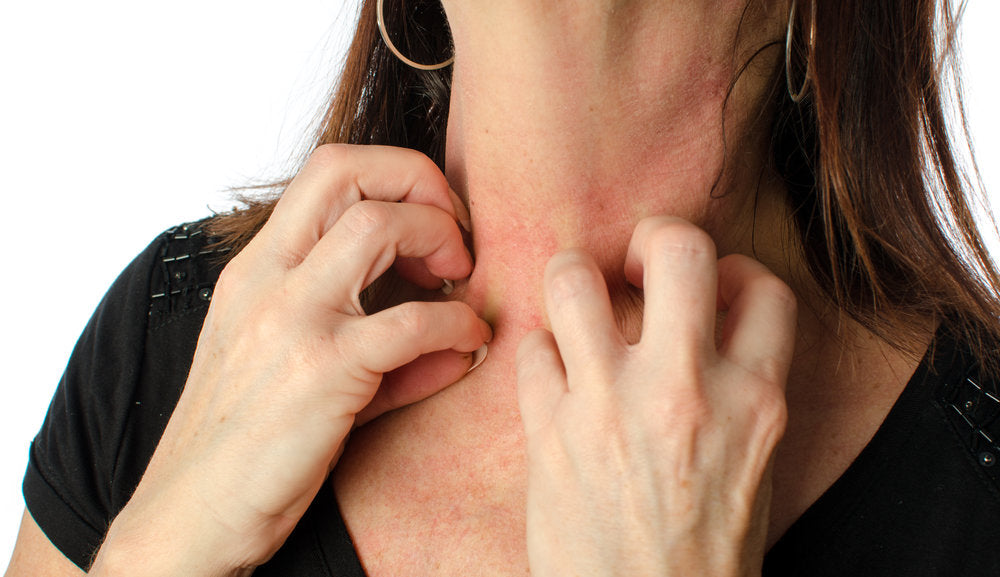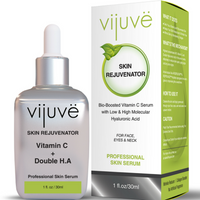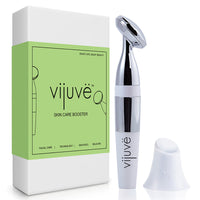
How to fight Skin Inflammation
The inflammation tends to occur on the face when it comes in contact with any foreign invader. Our immune system contributes to maintaining our health and the way we tackle skin diseases. Sometimes the immune system, during neutralizing harmful microbes or bacteria, results in skin inflammation. It typically occurs as a rash, pimple or blister on the face, which is due to your immune system's response to a particular dysfunction or allergic reaction.
The most common causes of inflammation, as observed by many people, include:
- Dermatitis
- Blisters
- Acne
- Psoriasis
- Skin redness
- Rashes
These are the early symptoms that trigger you to take care of the infected part on the skin. But in many cases, this inflammation flares up even more, which becomes difficult to treat. Skin redness and the pus coming out of the pimple are the first signs of face inflammation.
According to Dr. Janelle Vega, a certified dermatologist, "facial redness can be caused by other skin disorders, including inflammation." Depending on the type of inflammation triggered by an allergen or other stimulus, some effective ways and treatments are discussed in our article.
Topical products to consider
These products are applied directly to your face to reduce redness, inflammation, allergy, etc. These topical products contain anti-allergic or anti-bacterial stimulus containing hydrocortisone to heal itching, irritation and redness. Some of the best products to consider are:
- Anti-bacterial creams: These creams help neutralize bacteria resting on the affected part, i.e., pimple or blister. Anti-bacterial creams are often used for inflammation caused by bacterial infections.
- Vitamin C serum: If acne or Hyperpigmentation has been appearing on your face due to inflammation. Then you need to consider using vitamin C serum. It helps to reduce acne breakouts, blisters, red spots and pimples with pus. Apply vitamin C serum two times a day to heal facial inflammation.
- Calamine lotions: These lotions treat itching and irritation caused by inflammation. Calamine lotions contain hydrocortisone as an ingredient to eliminate itching and rashes.
- Immunomodulators: they directly send signals to the immune system to reduce inflammation that occurred due to neutralizing foreign invaders.
Treatment with home remedies
When the skin conditions caused by inflammation are not harsh or persistent, you can relieve inflammation to some extent using home remedies. Remember, these remedies only act for a brief period. If you deal with pushy skin inflammatory conditions, then you need to consult a dermatologist.
- Cold compress: A wet and cold compress can help you ease redness and itching. Take a clean napkin and soak it in cold water or apply an ice cube on the inflammatory area for pain relief. Washing your face with anti-inflammatory soap can also reduce inflammation and irritation.
- Massage with oil: Tea tree oil is effective in reducing skin inflammation due to its antimicrobial properties. It also helps to treat and heal seborrheic dermatitis.
- Anti-inflammatory diet: It is crucial to avoid foods that cause inflammation, such as drinks and colas, margarine, French fries and other oily meals. These foods are related to trigger further inflammation making pimples and blisters popping out. You need to strictly cut off any allergic causing meals, especially fried or oily ones. Consume meals like tomatoes, olive oil, spinach, kale, almonds, walnuts, oranges, berries, pineapple, lemon juice and salmon fish, as they contain antioxidants that reduce skin inflammation.
Medicines to take orally:
These oral medications that can reduce facial inflammation are taken only on a doctor’s prescription. Some include:
- Antihistamines: To treat any allergic reactions, antihistamines are usually prescribed. When our body comes in contact with any allergen causing stimulus, it releases chemicals such as histamines that result in itching and inflammation. Antihistamines block or reduce histamines to stop allergic reactions or inflammation.
- Dapsone: Dapsone helps to relieve itching and redness most usually associated with dermatitis herpetiformis. It is also used to treat certain skin infections and leprosy. Dapsone can be taken both topically and orally to reduce inflammation.
- Injections for psoriasis: Doctors also prescribe injectable medications for psoriasis like methotrexate, retinoids or biologics.
If you're observing persistent inflammatory conditions, you should consult a doctor as soon as possible. Certain allergic reactions can also develop into anaphylaxis, which is a life-threatening condition. If the rashes and blisters start appearing all over the body, then immediately seek medical emergency.
Other tips for skin inflammation
- Avoid allergy-causing meals.
- If dealing with inflammation, wear comfortable and soft clothes.
- Always carry anti-inflammatory or antihistamine medications whenever you travel.
- Rinse your face with cold water to soothe inflamed skin.
- Avoid sun exposures as it will further debilitate skin condition.
- Use a gentle cleanser.
- Moisturize regularly.
- Avoid any harsh topical product or cream.
- Keep a check on your diet routine.
Wrapping up
It is essential to find the root cause of your skin problem before treating it with any topical, oral or home medications. Inflammation appears for a brief period or it may remain persistent, leading to other skin conditions. If you observe inflammation and itching appearing all over the body, consult a doctor immediately.
Skin inflammation is generally a response from our immune system. This can be due to certain factors like an allergic reaction, immune system dysfunction or infection. The first sign of skin inflammation is a rash. Other symptoms may include redness, blistering or acne. A number of medications are available, whether topical or oral, to treat and reduce inflammation.




